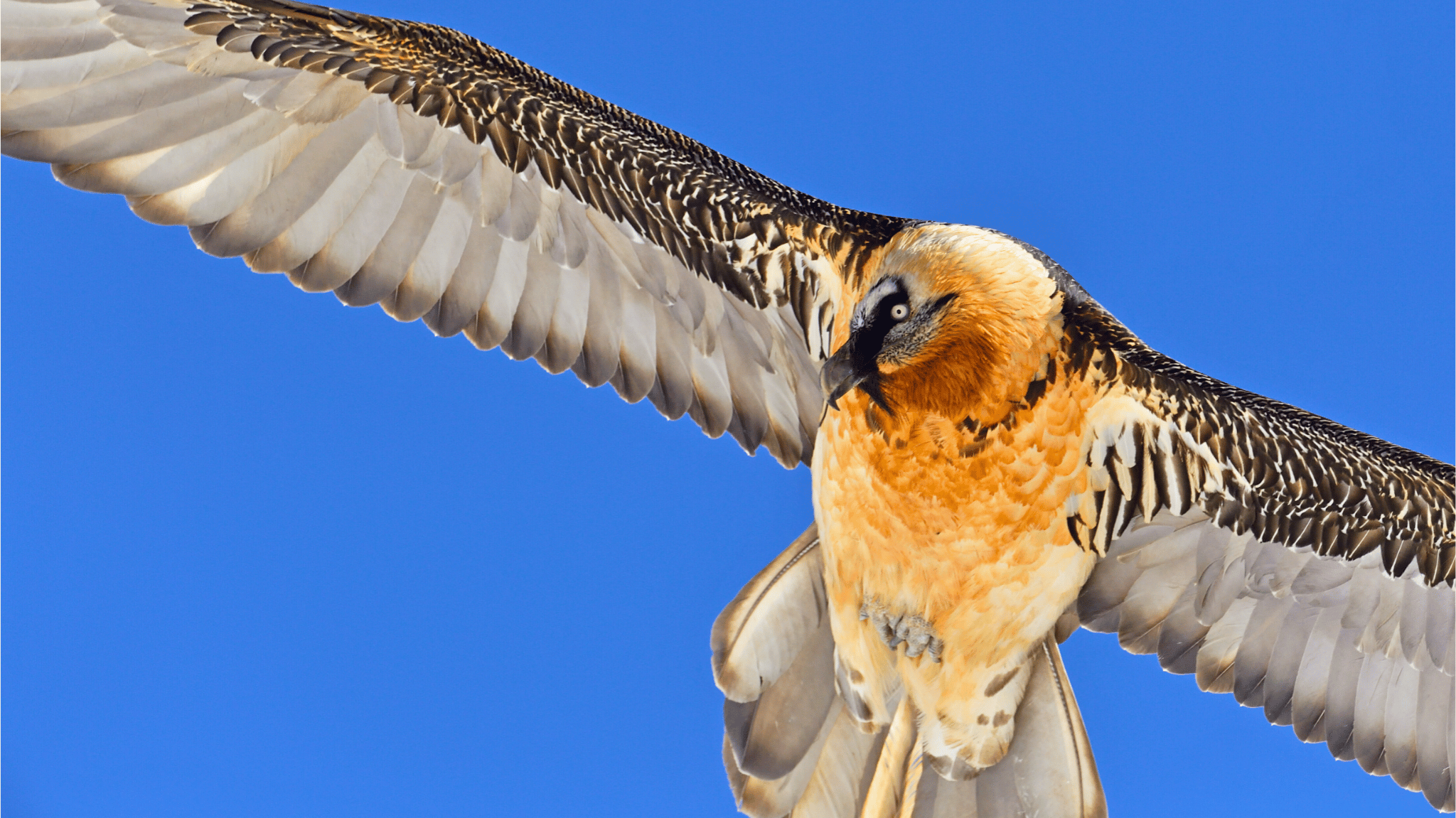
Our captive-breeding team were last on the island of Corsica releasing two young Bearded Vulture in collaboration with the Parc Naturel Régional de Corse back in 2017. This year we here at the Vulture Conservation Foundation have been delighted to be back working with our Corsican colleagues to help conserve the population of Bearded Vultures on the island. The collaboration this year has seen the successful extraction of two eggs from a wild nest that had been consistently unsuccessful (to build a pool of Corsican birds in our captive breeding network) and culminated in the release of two chicks on Monday 10 June, helping to strengthen the important population of Bearded Vultures on Corsica.
Bearded Vulture conservation on Corsica

Over the last 25 years the population of Bearded Vultures has suffered a dramatic decline, which has been especially marked since 2007, dropping from 10 breeding pairs to just five in the 2017/18 breeding season.
The Bearded Vultures on Corsica are the last remaining original population of the species that included the wider populations once found across the Alps, Sicily and Sardinia, which is known as a meta-population. This breeding population is vitally important as it is the last surviving genetic pool of this historic population of Bearded Vultures. The species has since been reintroduced with success to the Alps, where there are today more than 52 breeding pairs
As part of our commitment to the conservation of this population we, along with our partners on Corsica and other international organisations, helped devise an emergency action plan to address the decline which involved releasing captive-bred birds on the island and creating a genetic reserve by including birds from the Corsican population in the captive-breeding network, plus a suite of other conservation actions.
Releasing captive-bred Bearded Vultures

On Monday 10 June, two young birds were released into the wild as part of the 2019 Bearded Vulture Release Season.
The two birds, a male from Germany’s Nuremberg Zoo and a female from the Richard Faust Specialised Breeding Centre in Austria arrived on Thursday 6 June with Nuremberg Zoo´s staff. We would like to thank our colleagues from Nuremberg zoo and Deputy Director Dr. Helmut Mägdefrau who arranged the transportation of the two chicks.
In a public presentation the two birds were named Cintu and Orba, before being taken to their release site where they will monitored and fed without any human contact by the team from the Parc Naturel Régional de Corse until they fledge.
One of the young Bearded Vultures at the release site in their specially constructed nest
We have been working with Parc Naturel Régional de Corse to deliver the emergency action plan: in 2016 we released two birds, Montagnolu and Cimatella, followed by Luna and Ercu in 2017.
Extracting eggs to save the population
If the dramatic decline in the population of breeding pairs on Corsica continued the risk of losing the genes of the last remaining population of the meta-population of the species is very high. As part of the emergency action plan it was decided to include Corsican Bearded Vultures in the population of captive breeding birds. To do this our team devised a plan to extract eggs from wild nests that have been consistently unsuccessful over the last years and take them back to breeding centres, and with our decades of experience in captive breeding incubate and raise the young chicks. This action is risky and is a last-ditch effort to ensure the survival of the species on the island.
The first successful intervention was in 2016 when one egg was taken and the chick successfully raised and is now resident at the Guadalentín Specialised Breeding Centre in Andalucia. However, in 2017 the two eggs that were extracted proved to be infertile.
In March 2019, we along with colleagues from the Parc Naturel Régional de Corse extracted two eggs from a wild nest and transported them to the Vallcalent Specialised Breeding Centre in Catalonia Spain. It was with great excitement that both eggs were fertile and after carefully incubating, both eggs hatched successfully. The early days of one of the chicks was very dramatic as it had suffered a yolk sac infection but swift intervention and treatment with antibiotics by the team at Vallcalent resulted in the young chick surviving.

Both the chicks were then transferred to the Guadalentín Specialised Breeding Centre in Andalucia and have been raised by a dedicated foster pair.
This is a great result, both birds will now enter the captive breeding population and contribute to the conservation of the species in Corsica and across Europe.




